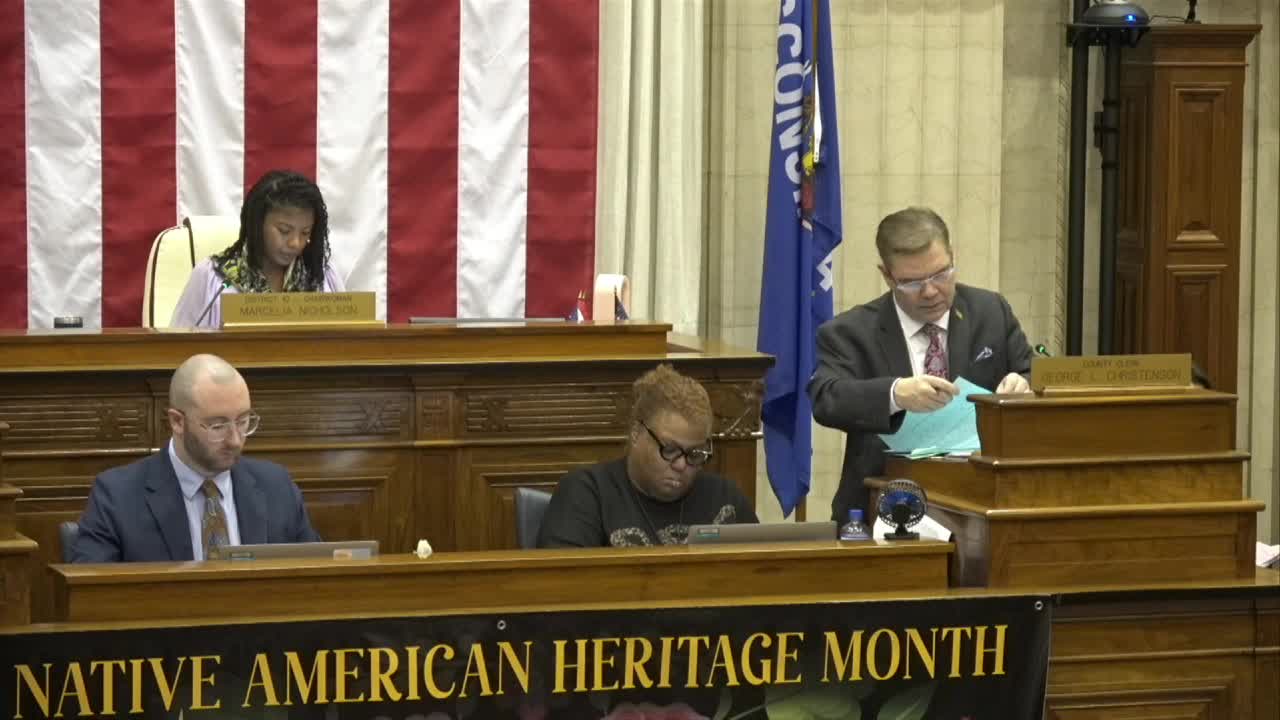Board rejects courthouse-funding swap to save MCTS Route 28, leans on $4.7M omnibus transit allocation
Get AI-powered insights, summaries, and transcripts
Subscribe
Summary
The Milwaukee County Board on Nov. 6 rejected a proposal to restore MCTS Route 28 by diverting money from a courthouse project and instead relied on a separate $4.7 million transit allocation that will let MCTS prioritize route restorations.
The Milwaukee County Board of Supervisors debated a proposal to restore Milwaukee County Transit System (MCTS) Route 28 by removing money from the planned IJCC (courthouse) project and rejected it on Tuesday, after extended floor debate about trade-offs and risk to state funding. A motion to substitute amendment 22 for amendment 8 failed on a roll call, 2 ayes to 16 noes; a subsequent vote on amendment 8 also failed, 6 ayes to 12 noes. The board instead relied on a separate omnibus transit allocation (amendment 19) that provides $4.7 million to MCTS and was adopted earlier in the budget process.
Why it matters: Supervisors framed the choice as a trade-off between short-term restoration of a single route and longer-term fiscal risk tied to a multi-year state funding arrangement. Supporters of the courthouse-funding swap said restoring Route 28 would preserve service used by students and residents with disabilities; opponents warned that diverting money earmarked in a handshake agreement with state partners could prompt the state to withhold roughly $20 million per year in support, potentially costing the county hundreds of millions over two decades.
Board debate centered on three paths supervisors said were possible: pass the amendment and restore Route 28 now; pass it and risk negative state action that would reduce future state support; or rely on the omnibus $4.7 million set aside for MCTS to prioritize routes countywide. Supervisor Ekblad argued the cameras under consideration would cover only a tiny portion of affected parks, calling it "a minimal deterrent in a small part of these parks." Supervisor Johnson Jr., who said he would vote for the omnibus transit allocation, framed choices in human terms: "Sometimes we do things because of money. Sometimes we do things because of we're dealing with human beings." Supervisor Balinski, a principal backer of restoring Route 28, said the route serves residents with blindness and other needs and urged urgency: "We need all of this money."
What the votes showed: The substitute motion to replace amendment 8 with substitute 22 failed 2-16. The subsequent vote on amendment 8 failed 6-12. Earlier in the day the board adopted a separate, unanimous amendment (19) that sets aside $4.7 million for MCTS to use in restoring routes and minimizing disruption; several supervisors said they preferred that vehicle for preserving service because it spreads decisions countywide and avoids a direct reallocation from the courthouse project.
Process and next steps: Multiple supervisors said they expect detailed route recommendations from MCTS in December under the $4.7 million allocation; several pledged to monitor MCTS to ensure Route 28 and other high-priority routes are included in the agency's restoration plan. Some supervisors warned the county executive signaled he would oppose diverting courthouse-related funds and that a veto fight and possible return to the board could follow.
Context: The dispute unfolded inside the larger 2026 budget deliberations, where supervisors weighed dozens of amendments and fiscal trade-offs. Board members repeatedly referred to the county's constrained general fund and the unique, politically sensitive nature of the state-county arrangement that funded part of the public safety project.
Ending note: The board's final budget includes the $4.7 million omnibus allocation for transit; supervisors who advocated for Route 28 said they will press MCTS to prioritize that corridor when the transit agency submits its restoration plan.
